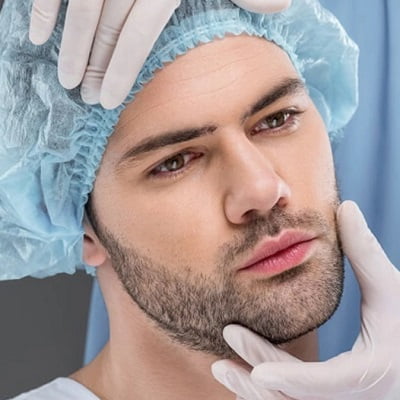
As more men want to have facial hair that is both fuller and more visually pleasing, beard hair transplants in Islamabad become a growing trend. Despite the procedure’s promising outcomes, persons considering getting a beard hair transplant frequently evaluate its possible risks and concerns, such as the possibility of infection.
In this blog post, we will delve into the intricacies of beard hair transplants, explore the factors contributing to infections, and discuss preventive measures to ensure a safe and successful procedure.
Overview – Beard Hair Transplants:
Before delving into the possibility of infections post-transplant, it’s crucial to understand the basics of beard hair transplants. This cosmetic procedure involves harvesting hair follicles from one part of the body, typically the back of the scalp, and transplanting them to the beard area. The transplanted follicles then grow new, permanent beard hair, providing a natural and long-lasting solution for those with sparse or patchy facial hair.
While beard hair transplants are generally safe and well-tolerated, like any surgical procedure, they carry some inherent risks, including the potential for infection. Considering these risks and taking proactive steps to minimize them is essential.
Factors Contributing to Infections:
Several factors can contribute to the risk of infection after a beard hair transplant. Understanding these factors is crucial for patients and healthcare professionals involved in the procedure. Some of the key contributors include:
Poor Post-Operative Care:
Neglecting proper post-operative care can significantly increase the risk of infection. Patients are often provided with specific instructions, including cleaning and caring for the transplanted area. Follow these guidelines to avoid complications.
Immunosuppression:
Individuals with compromised immune systems may be more susceptible to infections. Conditions like diabetes or autoimmune disorders can weaken the body’s ability to fight off bacteria, increasing the risk of post-transplant diseases.
Unsanitary Conditions:
The cleanliness of the surgical facility and the hygiene practices during the procedure are critical. Inadequate equipment sterilisation or a lack of adherence to sterile protocols may introduce bacteria to the surgical site.
Pre-Existing Skin Conditions:
Patients with pre-existing skin conditions, such as eczema or psoriasis, may have compromised skin barriers. This can make them more susceptible to infections and other complications during and after the transplant.
Preventive Measures:
Patients and healthcare professionals must adhere to strict preventive measures to minimize the risk of infection after a beard hair transplant. Here are some essential steps to ensure a safer and infection-free experience:
- Follow Post-Operative Care Instructions: Patients must diligently follow the post-operative care instructions provided by their healthcare professionals. This typically includes proper cleaning, avoiding touching the transplanted area with unwashed hands, and refraining from activities that may introduce contaminants.
- Maintain a Healthy Immune System: Before the procedure, patients should strive to maintain a healthy immune system. This involves a balanced diet, staying hydrated, getting adequate sleep, and managing stress. Consulting with a healthcare professional to address any underlying health issues is crucial.
- Choose a Reputable and Accredited Facility: A reputable and accredited surgical facility is paramount. Ensuring that the facility follows strict hygiene protocols, employs trained and qualified staff, and maintains a sterile environment significantly reduces the risk of infections.
- Screen for Pre-Existing Conditions: Healthcare professionals should conduct thorough screenings to identify any pre-existing skin conditions or medical issues that may increase the risk of complications. Addressing these concerns before the transplant can help mitigate potential risks.
The Bottom Line!
The risk of infection after a beard hair transplant can be significantly minimized through proper precautions and adherence to post-operative care instructions. As with any medical procedure, open communication between patients and healthcare professionals at SKN Cosmetic Clinic Islamabad is crucial for a successful outcome.
By understanding the factors contributing to infections and taking proactive measures, individuals seeking a fuller beard can undergo the transplant confidently, knowing that they have done everything possible to ensure a safe and successful procedure.



